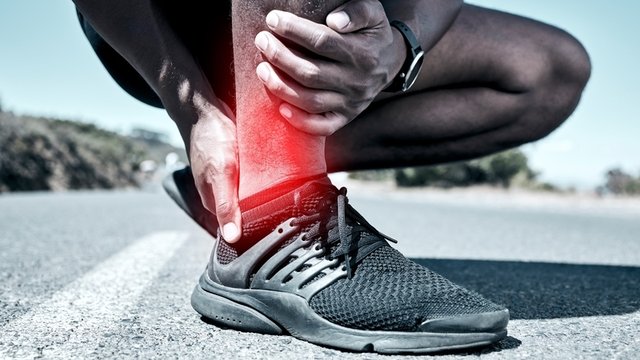
Psychology and sport injuries: How are they related?
Feb. 12, 2025

Psychology and sports injuries are intrinsically linked, especially in elite sports. A comprehensive approach to recovery, including psychological intervention, helps athletes return to peak performance more quickly.
The sports psychologists in charge of helping athletes are specialised professionals trained in programmes such as the Master in Sports Psychology Online or the Master in Sports Psychology from Escuela Universitaria Real Madrid .
The impact of sports injuries on athletes
Sports injuries can impact athletes' bodies to a greater or lesser degree depending on their severity, but they can also have psychological and social repercussions.
The physical consequences of injuries include pain and limitations in mobility, which lead the athlete to pause their training and, with it, to lose strength, endurance and skill. In addition, previous injuries increase the risk of new injuries.
As for the psychological repercussions, the inability to continue in the sport can generate high levels of stress and anxiety in athletes, which can sometimes lead to depressive states.
In addition, regarding the social impact, rehabilitation can distance athletes from their sporting and social environment, which can lead them to feel isolated. Ultimately, injuries can affect opportunities for contracts and sponsorships and the ability to compete at higher levels.
Use of psychology in sports injuries
Thanks to the awareness-raising work of athletes such as Simone Biles, it is becoming less and less strange for us to relate psychology and sports injuries.
Integrating psychological strategies into the sports injury recovery process not only accelerates physical recovery but also strengthens the athlete's mental and emotional resilience and helps with injury prevention. Some specific intervention strategies are highlighted below:
- Cognitive-behavioural techniques: these are techniques for managing the perception of pain, such as distraction and reinterpretation of pain.
- Relaxation techniques and mindfulness: deep breathing techniques and mindfulness help athletes stay in the present and accept their current situation without judgment, which reduces stress.
- Cognitive restructuring: helps athletes identify and modify negative or irrational thoughts about their injury and recovery.
- Visualisation and mental rehearsal involve imagining oneself successfully performing sporting movements, which increases confidence and reduces the fear of re-injury.
- SMART goals (Specific, Measurable, Achievable, Relevant and Time-bound): working with athletes to set realistic and achievable goals gives them a sense of purpose and direction.
Athletes who have overcome injuries with the help of sports psychology
Several top athletes have overcome serious injuries with the help of sports psychology, demonstrating the importance of this approach during the return to play.
Rafa Nadal
Rafa Nadal faced numerous injuries throughout his career. In particular, he dealt with Hoffa's syndrome in his left knee, which threatened to end his career. In addition to the medical team, Nadal worked with sports psychologists to manage the pain, anxiety and stress related to his injuries.
Carolina Marín
Badminton champion Carolina Marín suffered a serious anterior cruciate ligament (ACL) injury to her knee in 2019 and again in 2024, requiring surgery and a long period of rehabilitation. Marín worked with sports psychologists to manage the emotional impact of the injury and maintain motivation during her recovery.
Simone Biles
During the Tokyo 2020 Olympic Games, American gymnast Simone Biles faced an episode known as twisties, a mental disconnect that affects gymnasts' ability to perform aerial somersaults with precision. Because of this, Biles decided to withdraw from several competitions to focus on her mental health. During this period, the gymnast received support from sports psychologists to manage stress and anxiety, which was crucial for her mental recovery and for her return to competition.
Training in sports psychology
Among the role of the sports psychologist is to help athletes improve their performance, overcome injuries and manage the stress and pressure associated with high-level sport. If you are wondering what sports psychology is, it is a specialisation that combines knowledge of psychology, physiology, sports medicine and sports coaching.
This specialisation offers a wide range of professional opportunities:
- Sports psychologist in professional teams to provide psychological support to players, coaches and staff.
- Sports psychology consultant, responsible for advising on performance improvement techniques and stress management.
- Psychologist in academies and training centres to attend to young athletes or develop educational programs on the importance of mental health in sports.
- Research and teaching in universities and research centres, thus contributing to the development of knowledge in the field of sports psychology.
- Psychologist in sports federations to advise these organizations on policies and programs for the well-being of athletes.
With the increased recognition of the importance of mental health in sport, the demand for sports psychologists is growing. If you are interested in sport as a professional field, in addition to the sports psychology programmes, Escuela Universitaria Real Madrid has a wide portfolio of Real Madrid masters programmes, allowing you to become a leader in your chosen area of the sports sector.